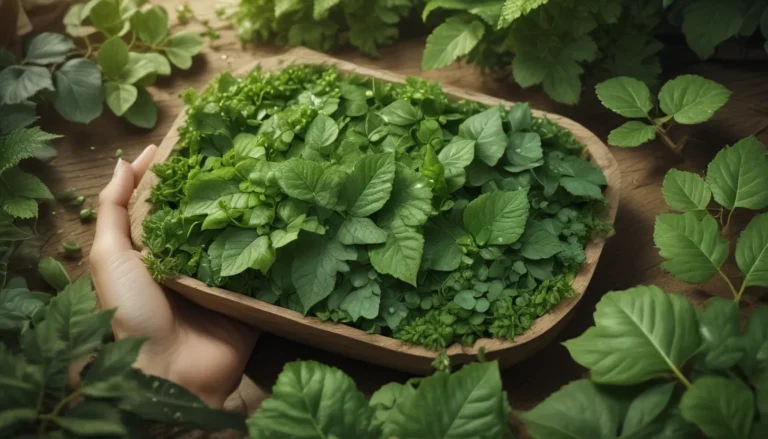A Note About Images: The images used in our articles are for illustration purposes only and may not exactly match the content. They are meant to engage readers, but the text should be relied upon for accurate information.
Plant breeding stands at the forefront of agriculture, breathing life into crop varieties with improved traits and characteristics. Delving into the realm of plant breeding unveils a world of innovation and discovery, where ancient practices mingle with cutting-edge technology to shape the future of food production. In this article, we’ll unravel 10 intriguing facts about plant breeding that showcase its pivotal role in enhancing global food security and sustainability. Join us on this enlightening journey through the fields of plant breeding!
Unraveling the Roots of Plant Breeding Through Time
The roots of plant breeding delve deep into history, spanning thousands of years across ancient civilizations like the Babylonians and Egyptians. Through selective breeding, these early pioneers sought to enhance desirable traits in plants, nurturing flavorsome crops with heightened resistance to diseases. This age-old practice laid the groundwork for modern plant breeding, setting the stage for the remarkable advancements that shape agriculture today.
Embracing the Legacy of Gregor Mendel: The Father of Modern Genetics
Gregor Mendel, renowned as the father of modern genetics, stands as a towering figure in the history of plant breeding. His groundbreaking experiments with pea plants in the 19th century unlocked the secrets of inheritance, paving the way for our understanding of how traits are passed down through generations. Mendel’s laws of genetic inheritance continue to guide plant breeders in their quest to develop superior crop varieties with precision and expertise.
Harnessing the Power of Hybridization in Plant Breeding
At the heart of plant breeding lies the transformative technique of hybridization, where genetic diversity intertwines to yield offspring with coveted traits. By crossing genetically distinct plants, breeders cultivate crops with enhanced yield, resistance to diseases, and adaptability to challenging environments. Through the art of hybridization, plant breeders infuse new life into agricultural landscapes, ushering in a wave of innovative crop varieties.
Embracing Diversity: The Fusion of Conventional and Biotechnological Methods
The landscape of plant breeding brims with diversity, blending traditional breeding methods with cutting-edge biotechnological approaches. While conventional techniques harness natural genetic variations and time-honored practices, biotechnological methods such as genetic engineering and marker-assisted selection offer precision and efficiency. This harmonious fusion empowers plant breeders to sculpt crops with tailored traits and unparalleled resilience, propelling agricultural innovation to new heights.
Nurturing a Sustainable Future Through Plant Breeding
As the world grapples with burgeoning population growth and environmental challenges, plant breeders stand as custodians of global food security. By developing resilient crop varieties that withstand pests, diseases, and climatic fluctuations, breeders fortify the foundation of sustainable agriculture. Their tireless efforts bolster crop productivity, ensuring a stable food supply for present and future generations, in harmony with the planet’s delicate ecosystems.
Cultivating Resilient Crops in the Face of Climate Change
Climate change poses a formidable adversary to agricultural systems worldwide, demanding swift and strategic interventions. Plant breeders rise to the challenge, crafting climate-resilient crops equipped to thrive amidst shifting environmental landscapes. These innovative cultivars boast traits like heat and drought tolerance, paving the way for adaptive farming practices that bridge the gap between tradition and technological ingenuity.
Illuminating the Path to Enhanced Nutritional Value
Beyond bolstering yield and disease resistance, plant breeding shines a spotlight on enhancing the nutritional value of crops. By selectively breeding for increased vitamin and mineral content, plant breeders sculpt varieties that offer enriched nutrition, combating micronutrient deficiencies and nurturing public health. This nutritional revolution underscores the transformative power of plant breeding in fostering well-being and vitality across communities.
Fostering Global Collaboration in Plant Breeding
Plant breeding transcends borders, uniting researchers and breeders from diverse corners of the globe in a spirit of collaboration. International partnerships and germplasm exchanges invigorate the field, enriching the genetic pool and propelling the development of novel crop varieties with unique attributes. This global synergy underscores the interconnectedness of plant breeding efforts, fusing collective expertise and innovation to chart a sustainable course for agriculture.
Plant Breeding: A Beacon of Sustainability in Agricultural Practices
Amidst the clamor for sustainable agricultural solutions, plant breeding emerges as a beacon of hope, guiding the way towards environmentally conscious farming practices. By fortifying crops with heightened resistance to pests and diseases, plant breeders curtail the reliance on chemical interventions, fostering a greener, more harmonious agricultural landscape. This harmonious interplay between tradition and innovation underscores the pivotal role of plant breeding in nurturing ecosystems and safeguarding biodiversity.
Celebrating the Tapestry of Crop Diversity Through Plant Breeding
The rich tapestry of crop diversity woven by plant breeding casts a vibrant spectrum of traits and characteristics, offering farmers a kaleidoscope of options tailored to diverse growing conditions. This wealth of genetic resources not only equips farmers with versatile solutions but also safeguards against unforeseen threats, fortifying agricultural resilience and preserving the intricate web of biodiversity. Through the lens of plant breeding, we witness a celebration of nature’s boundless creativity and adaptability.
Conclusion: Forging a Path to Sustainable Agriculture Through Plant Breeding
Plant breeding stands as a testament to human ingenuity and resilience, forging a path towards sustainable agriculture in the face of evolving challenges. By unlocking the genetic mysteries of plants and harnessing the prowess of advanced technologies, plant breeders metamorphose the agricultural landscape, ensuring a bountiful harvest for generations to come. As we embark on this journey of discovery and innovation, the transformative power of plant breeding shines brightly, illuminating the way forward in our quest for a resilient and nourished world.
FAQs: Exploring Plant Breeding Insights
Q: What is plant breeding?
A: Plant breeding is a science-based practice that involves selecting and manipulating plants to develop new and improved varieties with desired traits.
Q: What techniques are used in plant breeding?
A: Plant breeders employ various techniques such as hybridization, selection, mutation breeding, and molecular breeding techniques like genetic engineering and genome editing.
Q: How does plant breeding contribute to food security?
A: By developing high-yielding and disease-resistant crop varieties, plant breeding helps ensure a stable and sufficient food supply to meet the demands of a growing global population.
Q: Are there any ethical considerations in plant breeding?
A: Ethical considerations in plant breeding revolve around factors such as intellectual property rights, maintaining biodiversity, and ensuring the safety and environmental impact of new crop varieties.
Q: Can anyone become a plant breeder?
A: Becoming a plant breeder typically requires a solid background in plant science, genetics, and specialized training in breeding techniques. However, anyone with passion and dedication can contribute to the field through collaborations and partnerships.
Embrace the boundless possibilities of plant breeding as we embark on a journey of discovery and innovation, reshaping the landscape of agriculture with each new crop variety and every resilient harvest. Plant breeding beckons us to join hands in a global symphony of sustainability, harmonizing tradition and technology to nurture a thriving future for agriculture and beyond. Let us venture forth with curiosity and purpose, cultivating a world where the seeds of progress blossom into a vibrant tapestry of nourishment and resilience.






